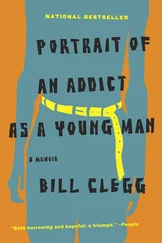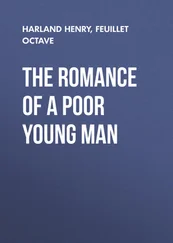Edmund White - Our Young Man
Здесь есть возможность читать онлайн «Edmund White - Our Young Man» весь текст электронной книги совершенно бесплатно (целиком полную версию без сокращений). В некоторых случаях можно слушать аудио, скачать через торрент в формате fb2 и присутствует краткое содержание. Год выпуска: 2016, Издательство: Bloomsbury USA, Жанр: Современная проза, на английском языке. Описание произведения, (предисловие) а так же отзывы посетителей доступны на портале библиотеки ЛибКат.
- Название:Our Young Man
- Автор:
- Издательство:Bloomsbury USA
- Жанр:
- Год:2016
- ISBN:нет данных
- Рейтинг книги:3 / 5. Голосов: 1
-
Избранное:Добавить в избранное
- Отзывы:
-
Ваша оценка:
- 60
- 1
- 2
- 3
- 4
- 5
Our Young Man: краткое содержание, описание и аннотация
Предлагаем к чтению аннотацию, описание, краткое содержание или предисловие (зависит от того, что написал сам автор книги «Our Young Man»). Если вы не нашли необходимую информацию о книге — напишите в комментариях, мы постараемся отыскать её.
Vogue
Our Young Man — читать онлайн бесплатно полную книгу (весь текст) целиком
Ниже представлен текст книги, разбитый по страницам. Система сохранения места последней прочитанной страницы, позволяет с удобством читать онлайн бесплатно книгу «Our Young Man», без необходимости каждый раз заново искать на чём Вы остановились. Поставьте закладку, и сможете в любой момент перейти на страницу, на которой закончили чтение.
Интервал:
Закладка:
Edmund White
Our Young Man
To Christopher Bollen
Then she remembered him, that he was there. All of him, with his hands, his eyes.
— LEO TOLSTOY, ANNA KARENINA, TRANSLATED BY RICHARD PEVEAR AND LARISSA VOLOKHONSKY1
Although Guy was thirty-five he was still working as a model, and certain of his more ironic and cultured friends called him, as the dying Proust had been called by Colette, “our young man.” For so many years he’d been actually young; he’d arrived from Paris to New York in the late 1970s when he was in his late twenties but passed as nineteen. He’d been the darling of Fire Island Pines the summers of 1980 and 1981; everyone in the Octagon House was in love with him and he was a good deal more egalitarian and participatory in chores and expenses than he needed to be, splitting the grocery and housecleaning bills down to the last penny, even when he skipped meals or entire weekends.
Everyone adored him, so he could have skimped on his share. He was making $175 an hour as a model for a whole host of beauty products, which was a lot of money in those days; he made more in two hours than his housemate, the young journalist Howard, earned in a week, or Howard’s lover the mustachioed Cuban bartender Martin took in at Uncle Charlie’s in tips on two or three shifts. Even his heavy French accent made him all the more desirable; one of their most besotted housemates, Tom, started taking French lessons but could never master a whole sentence.
Nor was he stinting with his favors. He’d swallow an after-dinner concoction Ted would assemble of acid, tranquilizers, Quaaludes, and the odd yellow jacket. After a strenuous night of dancing at the Sandpiper he’d be found nude at dawn, splayed in the surf with three other amorous beauties or massaging a Croatian fellow model on the deck by the pool as they sipped big shaggy joints of Acapulco gold.
He liked the Pines, since the muscular men there were bankers or lawyers or surgeons and not just gigolos, as comparable studs would have been in Saint-Tropez, lounging around on the decks of moored yachts (or “laying out in the sun,” as these American guys all said, though Guy knew from lycée English class back in France that it should be “lying”; the French, he thought primly, would never have made a similar mistake in their own language).
He was from Clermont-Ferrand, a big, dead, dreary industrial city in the heart of France, lava-black, cold in the winter and suffocatingly hot in the summer, and now he sent home a thousand dollars a month from New York to his pious mother, who arranged the flowers for the altar, and his Communist father, a Michelin factory hand who’d been laid off for twenty years, living on welfare and drinking too much red wine (his first coup de rouge he downed at eleven every morning, an old habit from his working days).
Guy had always known since his grandmother had told him that he was unusually handsome, with his jug ears, full inviting upper lip, and dark intense eyes the color of burnt honey; only the brightest sunlight discovered the amber spokes in them. He’d played soccer in the streets since he was a six-year-old and had the round ass to prove it, itself as firm and slightly giving as an inflated soccer ball. He was six-foot-three and towered over his friends but he was always disastrously skinny and his nickname had been “Sec” (“Dry”) because that’s what the French called those who hadn’t an extra gram of fat on them. When he was seventeen he began to fill in, but just about then he turned moody ( boudeur ) and started smoking and skipped classes and resigned from being the crozier at church — in fact he slept in on Sundays and missed mass altogether; the omission made his mother cry and his father smile. His parents quarreled once a week and his father, drunk, broke furniture and his mother pronounced bitter reproaches in a soft speaking voice, precise, hateful condemnations which she’d devised to wound and which she muttered expressionlessly.
There were two younger children, a boy and a girl, the nearest, Robert, five years younger, and the girl, Tiphaine, a dozen — both of them presumably the result of Saturday night rapes visited on his outraged mother. The little kids were mousy and unattractive, although Tiphaine seemed to be gifted in math and Robert loved his father and was loved back; their companionship made Guy feel all the more isolated. In the autumn Guy’s father and Robert always left on a weeklong hunting trip to the Sologne to which Guy was never invited.
Guy went with a girl, a friend from lycée , to a session with a professional photographer; she had her heart set on being a top model, though she was overweight and spotty. Everyone in France said “topmodel,” as if it were a bound form. The bored photographer, to whom she was paying five hundred francs for her “portfolio,” ended up taking as many pictures gratis of Guy as of Lazarette. He told Guy that he should pursue modeling. Guy stored that hint away; it might be his passport out of Clermont-Ferrand. Although he was a little rebellious, nevertheless he was a good boy and “projected” goodness — which later would be the downfall of many a person.
One weekend Guy went to Paris with some pilgrims from his church; although he claimed to be an atheist he wanted to see Paris and agreed to participate in the huge youth rally mass that was being held in the Parc des Princes. But on the day of the mass he snuck off and took the Métro to Saint-Germain-de-Prés, which he’d read in a magazine was the artistic center of the capital. He sipped a coffee and studied Le Soir at the highly recommended Café de Flore for two hours, and when he got up to leave a friendly-looking middle-aged man sitting by the window waved him over. “Hello, hello,” he sang out in a loud voice in which Guy could detect just a hint of irony, or was he, Guy, being the provincial paranoid?
Guy had on his tightest black pants and most beautiful baby-blue sweater, though it was really too warm for a sweater. He’d spent an hour before the mirror at the hostel nursing his hair into little sheep curls and had twice gone through all three outfits he’d brought with him. Tiphaine always ribbed him for being more vain than a girl, but their grandmother, overhearing her, had said, “He’s obsessed with his looks and clothes like any normal teenage boy.” Although she’d retired to Clermont-Ferrand she’d been a cashier (“Madame Caisse”) for forty years at a popular Parisian café. She kept her eyebrows plucked and lips painted magenta with a brush even now. From the waist up she was always impeccable, though her skirt was stained and twisted and her shoes worn down; on the job only her top half had been visible to customers and even now that was all she cared about. She chain-smoked Gauloises and drank a shot of cognac every night after dinner. She had a certain Parisian sauciness that the rest of the family lacked and a salty Titi Parisienne way of talking like the actress Arletty.
The man at the Café de Flore invited Guy to join him for a drink. He said, “It’ll just take a second of your time and it could change your whole life.” Guy’s heart was racing but he thought no harm could come to him, could it, in such a public place. Surely he was safe here, wasn’t he?
The man, who was bald but had very shaggy eyebrows to compensate and was wonderfully well dressed in a gray sports jacket the color of a cloud and a flamboyant red and gold silk pocket square, said his name was Pierre-Georges. As soon as Guy had ordered a Suze, which he thought was sufficiently elegant and its yellow color would work to enhance his brown eyes, Pierre-Georges said, “You’re the best-looking man in Paris today. Surely you’re aware of that.” He handed Guy his card, which had the words SCOUTING AGENT printed in embossed letters below his name and above his details. “It’s my business to know these things.”
Читать дальшеИнтервал:
Закладка:
Похожие книги на «Our Young Man»
Представляем Вашему вниманию похожие книги на «Our Young Man» списком для выбора. Мы отобрали схожую по названию и смыслу литературу в надежде предоставить читателям больше вариантов отыскать новые, интересные, ещё непрочитанные произведения.
Обсуждение, отзывы о книге «Our Young Man» и просто собственные мнения читателей. Оставьте ваши комментарии, напишите, что Вы думаете о произведении, его смысле или главных героях. Укажите что конкретно понравилось, а что нет, и почему Вы так считаете.












